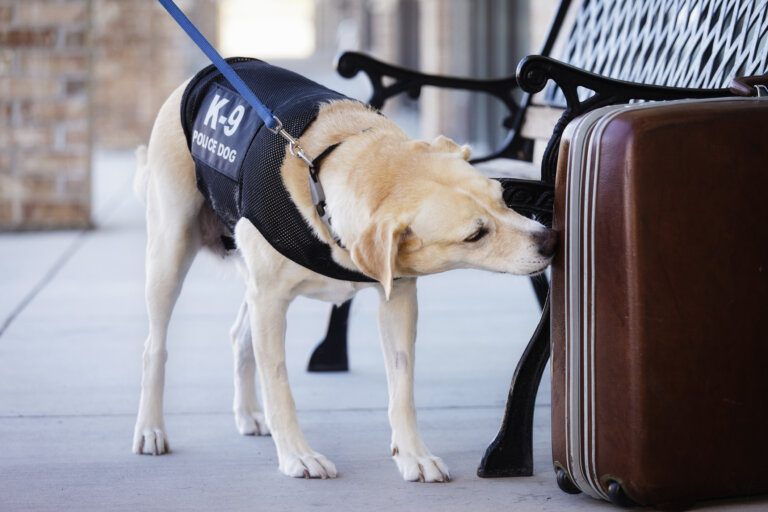In Florida, traffic stops can become complex when law enforcement involves drug-sniffing dogs. These trained canines play a crucial role in detecting illegal substances, but their presence also raises important questions about your rights. Understanding the legal boundaries and your rights during such encounters is essential. This blog will explain the legal standards that law enforcement must adhere to during traffic stops and what you can do when they don’t.
The Role of Drug-Sniffing Dogs in Traffic Stops
Drug-sniffing dogs are a key asset for law enforcement in Florida, especially during traffic stops. These highly trained canines are skilled in detecting a variety of illegal substances, ranging from narcotics to contraband. When a vehicle is stopped for a traffic violation or on reasonable suspicion, officers may employ these dogs to conduct an exterior sniff of the vehicle. This is typically done if the officer has specific reasons to suspect the presence of illegal substances. The dog’s behavior during the sniff can significantly influence the officer’s decision-making process. An alert from the dog can lead to a more thorough search of the vehicle, but it’s important to remember that this step must still align with legal protocols and respect the driver’s rights.
Legal Grounds for Traffic Stops and K-9 Searches
Traffic stops in Florida must be legally justified; an officer needs either a traffic violation or reasonable suspicion of criminal activity to initiate a stop. Once a vehicle is lawfully stopped, the use of a drug-sniffing dog hinges on additional legal nuances. The Supreme Court has ruled that a dog sniffing around the exterior of a vehicle at a traffic stop doesn’t violate the Fourth Amendment, provided the stop itself is lawful and the duration isn’t unreasonably prolonged for the dog’s arrival.
This means that while an officer can use a K-9 unit during a stop, they cannot extend the stop’s duration solely for the dog to arrive and conduct a sniff unless they have independent reasonable suspicion to do so. These legal grounds aim to balance law enforcement’s needs with the protection of individual rights against unreasonable searches.
Your Rights During a Traffic Stop
During a traffic stop in Florida, you have specific rights designed to protect your privacy and freedom. First, you have the right to remain silent; you’re not required to answer questions about your destination, your activities, or whether you possess illegal substances. While you should provide your license, registration, and insurance when asked, you’re not obligated to consent to a search of your vehicle.
If an officer asks for permission to search, you have the right to politely refuse. However, if a drug-sniffing dog is used and alerts to the presence of narcotics, this may give the officer probable cause to search without your consent. Understanding these rights is crucial in ensuring that any search or seizure is conducted legally.
What Happens If a Drug Dog Alerts?
If a drug-sniffing dog alerts during a traffic stop, it typically gives law enforcement probable cause to search your vehicle without needing your consent. This alert means the dog has detected the scent of narcotics, which officers use to justify a more thorough investigation. However, an alert alone doesn’t automatically validate the search’s legality or the seizure of any substances found. The circumstances leading to the alert and the dog’s reliability may still be scrutinized in legal proceedings.
Challenging Unlawful Searches in Court
Challenging an unlawful search in court hinges on proving that the search violated your Fourth Amendment rights. If a traffic stop or the subsequent search by a drug-sniffing dog was conducted without proper legal justification, evidence obtained may be inadmissible in court. A skilled drug crime defense attorney can argue to suppress such evidence, questioning the lawfulness of the stop, the validity of the dog’s alert, or the reasonableness of the search duration. Successfully challenging an unlawful search can significantly impact the outcome of a case.
Protect Your Rights at Traffic Stops
Navigating the complexities of traffic stops and drug-sniffing dog searches requires a keen understanding of your rights and the law. If you find yourself in such a situation, it’s crucial to have experienced legal counsel on your side. Contact Van Elswyk Law today to ensure your rights are protected and for knowledgeable guidance through every step of the legal process.

